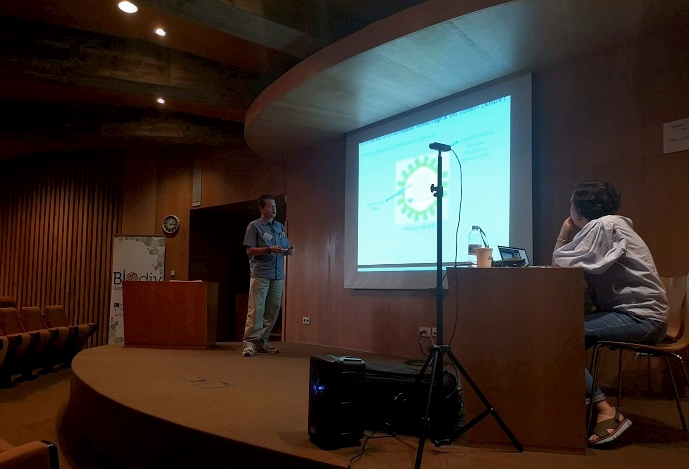Meeting: Melhoria das ações preventivas contra LAGovírus emergentes na bacia do MEDiterrâneo: desenvolvimento e otimização de metodologias para deteção e controlo de agentes patogénicos
News
On July 20th, 2023, the meeting Melhoria das ações preventivas contra LAGovírus emergentes na bacia do MEDiterrâneo: desenvolvimento e otimização de metodologias para deteção e controlo de agentes patogénicos, organized by IMED researchers Joana Abrantes and Ana M. Lopes, was held at BIOPOLIS-CIBIO-InBIO Auditorium in Vairão, with more than thirty participants from various countries and with different backgrounds, including researchers, professors, veterinarians, rabbit producers, animal welfare companies and students.

On July 20th, 2023, the meeting Melhoria das ações preventivas contra LAGovírus emergentes na bacia do MEDiterrâneo: desenvolvimento e otimização de metodologias para deteção e controlo de agentes patogénicos, organized by IMED researchers Joana Abrantes and Ana M. Lopes, was held at BIOPOLIS-CIBIO-InBIO Auditorium in Vairão, with more than thirty participants from various countries and with different backgrounds, including researchers, professors, veterinarians, rabbit producers, animal welfare companies and students.
The meeting focused on lagoviruses and reinforced the importance of studying these viruses, since leporids, in particular the European rabbit, are a poorly studied, neglected species, despite their ecological and economic importance. The lagovirus rabbit hemorrhagic disease virus (RHDV) causes a highly contagious disease, which leads to high mortality and morbidity rates in the European rabbit and, since 2010, in other leporids. In addition, the virus has a high environmental resistance, retaining its pathogenicity for a long time, and dissemination seems to be aided by mechanical vectors such as scavenging flies. Altogether, this hampers containment and control of the disease. During the meeting, researchers presented their latest work on RHDV, contributing to the state-of-the-art and spurring lively discussions.
This meeting marked the end of the LAGMED project, but fostered new collaborations and ensured the continuity of those already established.
More information: www.lagmed.eu
